KATHMANDU, Nepal, December 12, 2008 -When a team of Soldiers from the United States Army, Pacific (USARPAC) landed in Nepal recently, they were surprised to see many Americans in the airport. But unlike their fellow travelers heading north for an adventurous trek up to Mount Everest, the Soldiers had a more serious mission.
They were heading south, packing medical supplies and equipment to help Nepalese devastated by floods.
Seventeen Soldiers from the USARPAC Surgeon's Office and Tripler Army Medical Center participated in a joint training exercise Nov. 14-21 with a team of Soldiers from Nepal's Eastern Army Division. Their mission focused on disaster relief and humanitarian assistance in the wake of flooding that had left more than 50,000 people homeless and in desperate need of medical care. Not only did the Soldiers provide medical supplies and equipment, they brought valuable Soldier skills to help train Nepal's Army to respond when a natural disaster or humanitarian crisis threatens their country.
Perched on the southern slopes of the Himalayan Mountains, bordering India and China, Nepal's population of 27 million ranks among the world's poorest. Most have little access to medical care.
The U.S. Pacific Command (USPACOM) coordinates U.S. military engagement and security assistance with Nepal through the Office of Defense Cooperation. Soldiers from USARPAC routinely travel to countries throughout the Asia-Pacific region to engage with other armies as part of USPACOM's Theater Security Cooperation Program, (TSCP).
"We were there to help them out medically, but at the same time show the NCO Corps what they can do," said Sgt. Maj. Howard McBean the chief medical non-commissioned officer assigned to the USARPAC Surgeon's Office. "Not all these countries have an NCO Corps as strong as we do." A combat medic with more than 21 years of service, McBean speaks from experience having participated in recent exercises in Indonesia, the Philippines and Cambodia.
McBean was exactly the type of highly skilled Soldier needed to lead the training. He and the USARPAC NCOs took the Nepalese Soldiers through the rigors of combat life support training and taught critical skills that will help Nepalese Soldiers prepare to be first responders in the event of a crisis. All of the Nepalese Soldiers passed the course.
"They loved it" McBean said of the training exercises. "You could feel the hunger, their quest to learn." He said the Nepalese officers were very open and gave them a lot of freedom and leeway. "They'd say, 'yeah, that's a good way, we need to try that,'" McBean said. "Our presence there was definitely felt."
The armies worked together to set up "health camps" in schools and invited the villagers to seek treatment from the U.S. and Nepalese medical teams. Nepal's Army provided interpreters to facilitate communication between medical personnel and the patients.
McBean expected the crowds to be light on the first day. But on the second day, "it was game on!" McBean exclaimed. From women cradling infants, to the elderly and all ages in between, thousands flocked to the camps seeking treatment.
In a span of less than a week, the Soldiers treated more than 4,296 patients.
The optometry clinic was one of the biggest draws, with Soldiers dispensing hundreds of pairs of glasses on the spot. "They were so grateful," McBean said of the patients that walked away with the gift of sight. Not only did the U.S. Soldiers make a positive impression on the local population, they also impressed their Nepalese Army counterparts.
"The example set by our NCOs had a lasting impact on the Eastern Division's leadership and Soldiers," said Lt. Col. Pete Eberhardt, the operations officer for the exercise. "The joint health camps significantly increased the capacity of the Nepalese Army to respond to future disaster scenarios."
McBean and Eberhardt said the reactions were overwhelmingly positive from the Eastern Division. "They saw first-hand a professional NCO Corps that has the authority to make decisions and operate with an intent that allows them to accomplish a mission without micromanagement from an Officer Corps," Eberhardt explained. The exercise was such an overwhelming success that they are looking at an annual engagement with Nepal.
The hospitality and appreciation shown by the Eastern Army Division headquarters to the U.S. forces blew everyone away, McBean said. As a sign of their appreciation, the Nepalese Soldiers hosted a cultural day and led the USARPAC Soldiers on a trek into the Himalayas, traversing hillsides on foot beyond any navigable roads.
Suddenly they came to a clearing. To their amazement, the Nepalese Army Soldiers had carved out a stage entirely by hand. "It was very touching," McBean said. In this picturesque setting, the Nepalese Soldiers showcased their traditional dances, music and cuisine of the Hindu nation with their new American friends.
"It was so rewarding," McBean said of the exercise. "I don't think anyone was ready to leave." While bidding farewell, the U.S. and Nepalese Soldiers exchanged email addresses. McBean said he was surprised that all of the Nepalese Soldiers have g-mail and Yahoo accounts.
The return trip presented another adventure for the USARPAC team. They were stranded in Thailand when the airport shut down for more than a week due to government protests. McBean said he received several emails from the Nepalese Soldiers, inquiring on their safety.
Reflecting on the exercise, McBean said he looks forward to their next trip to Nepal. "I have seen another side of the Army that many people don't get to see," he said, adding that his fulfillment comes from seeing the faces of the lives he has impacted. "It's given me an experience I will cherish the rest of my life," McBean said. "The mission was definitely a success!"

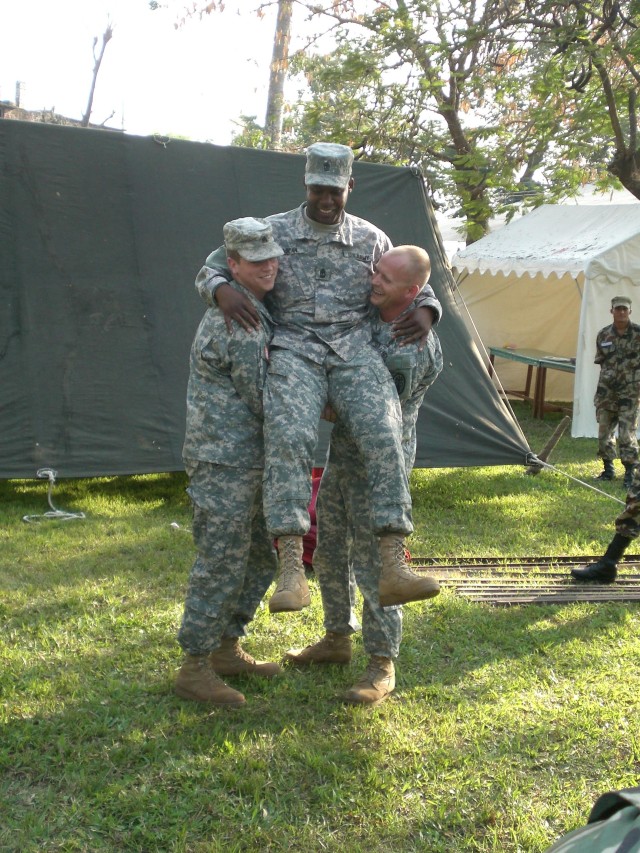





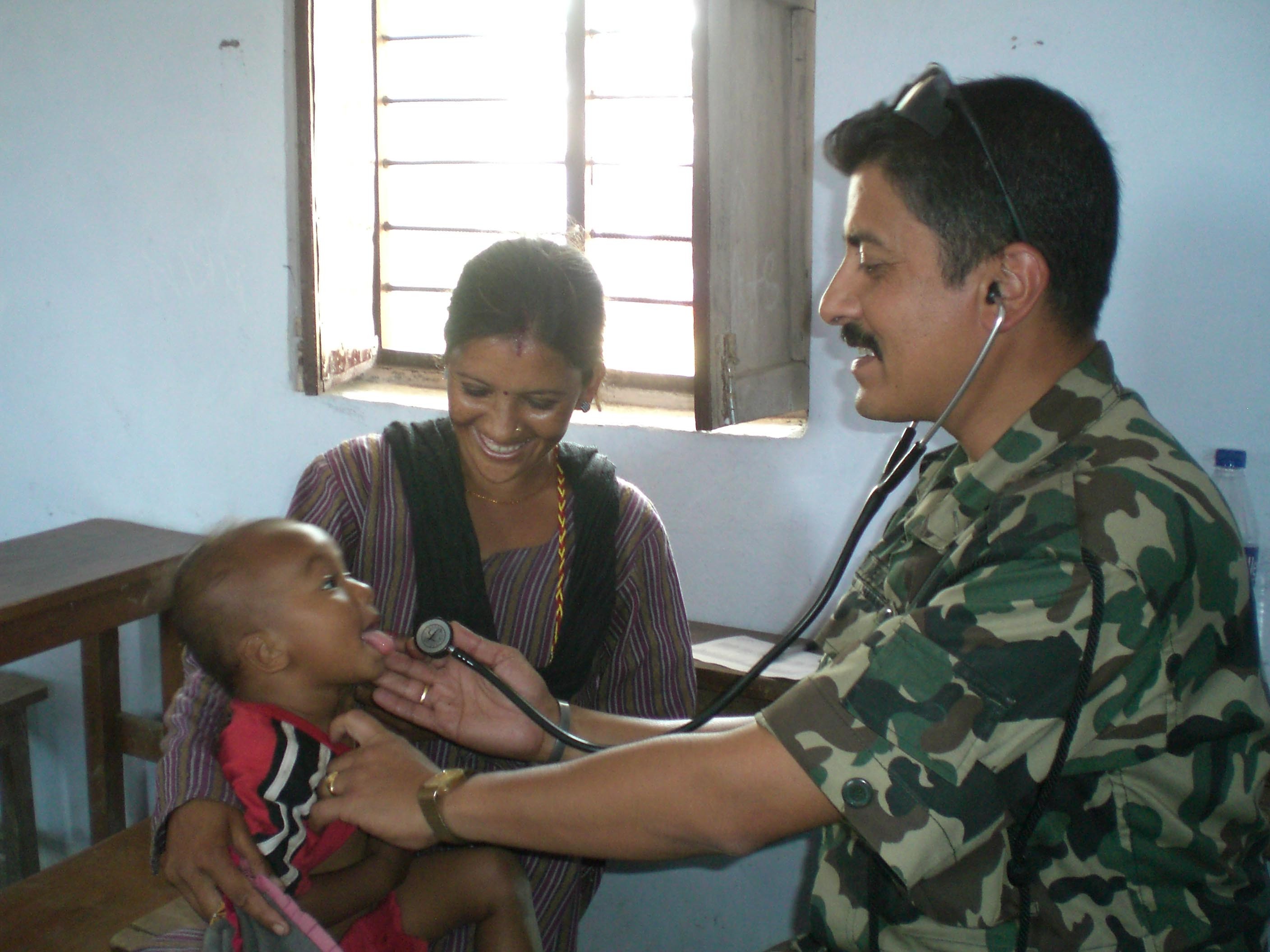
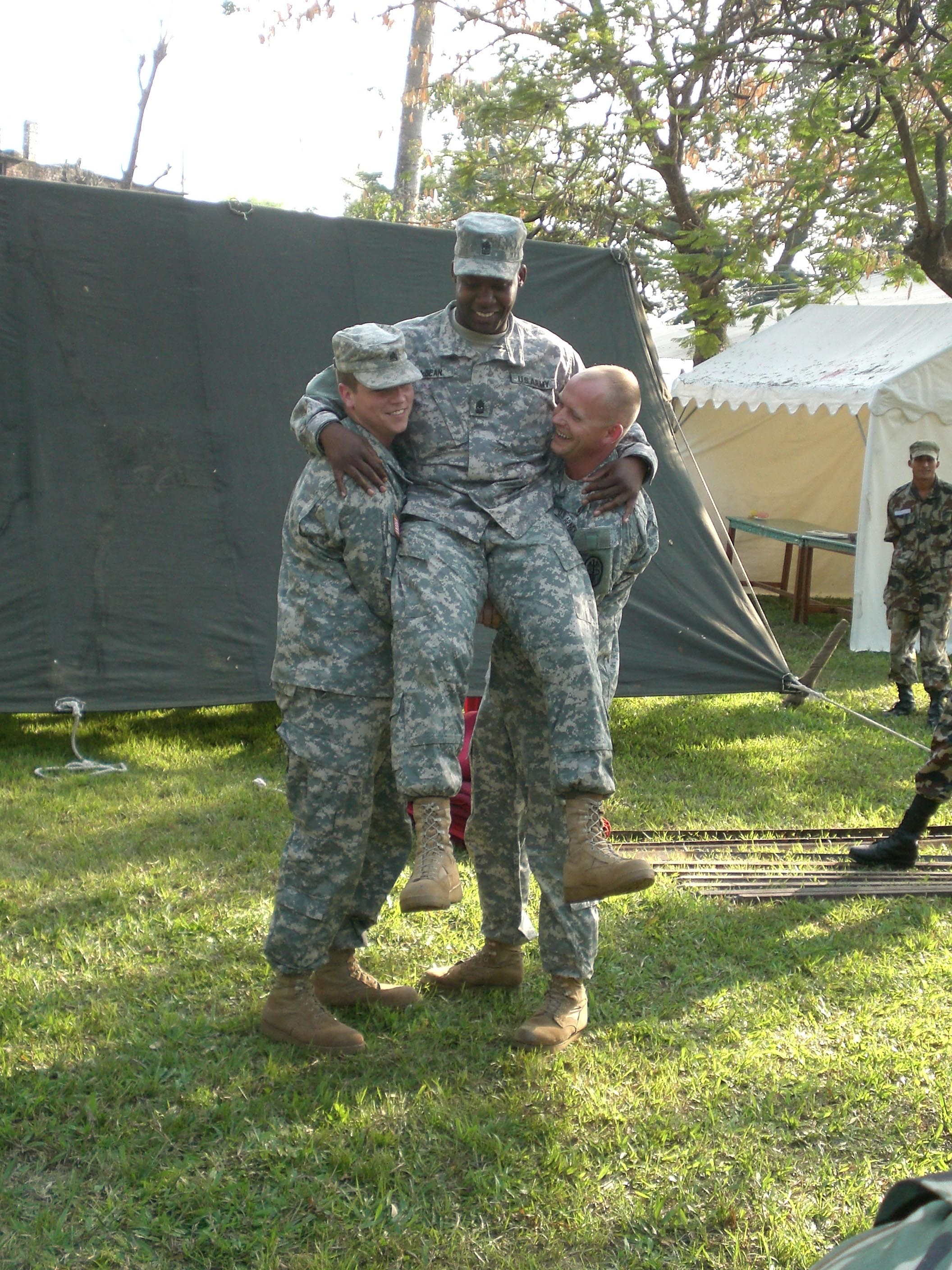

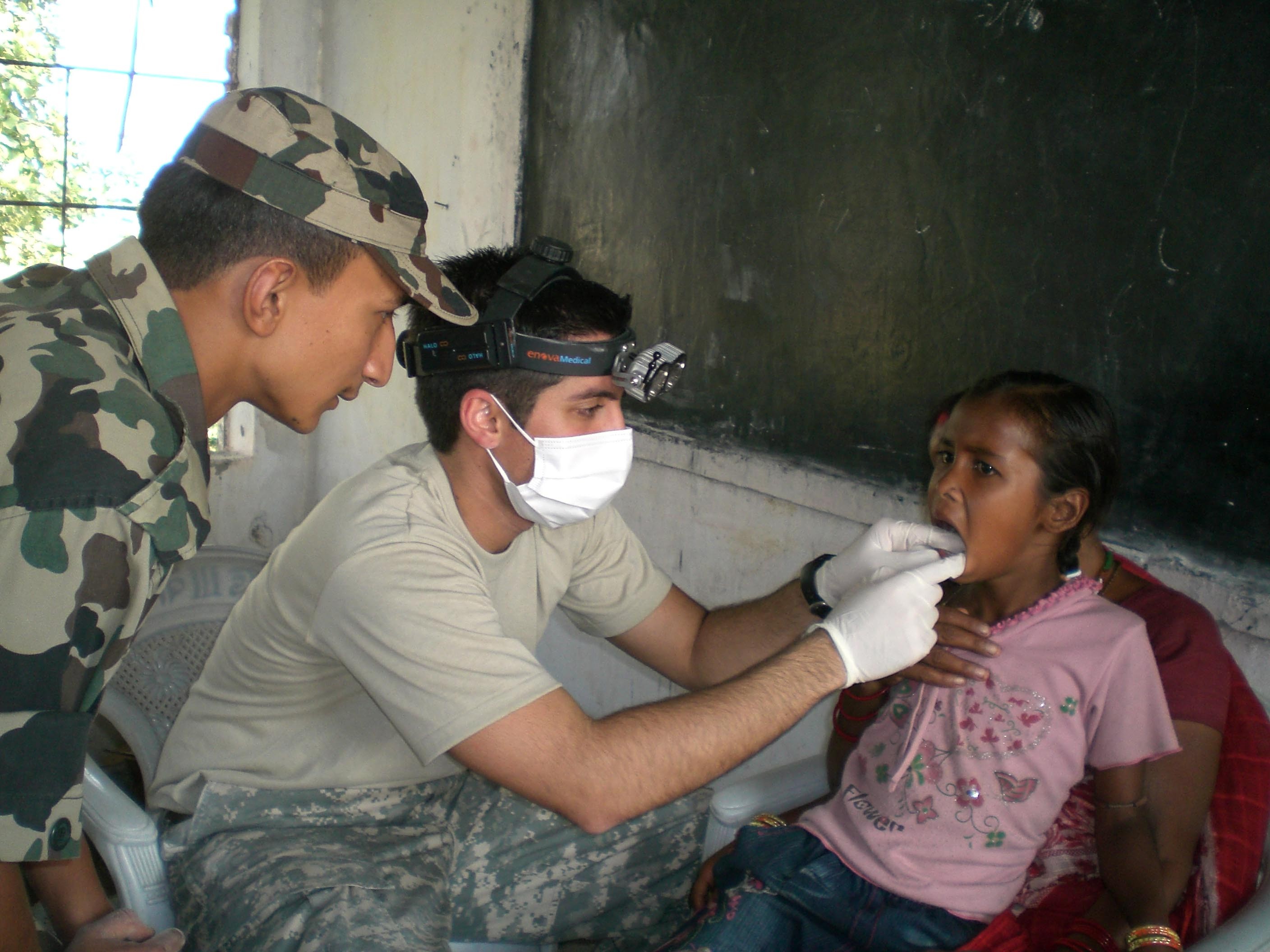

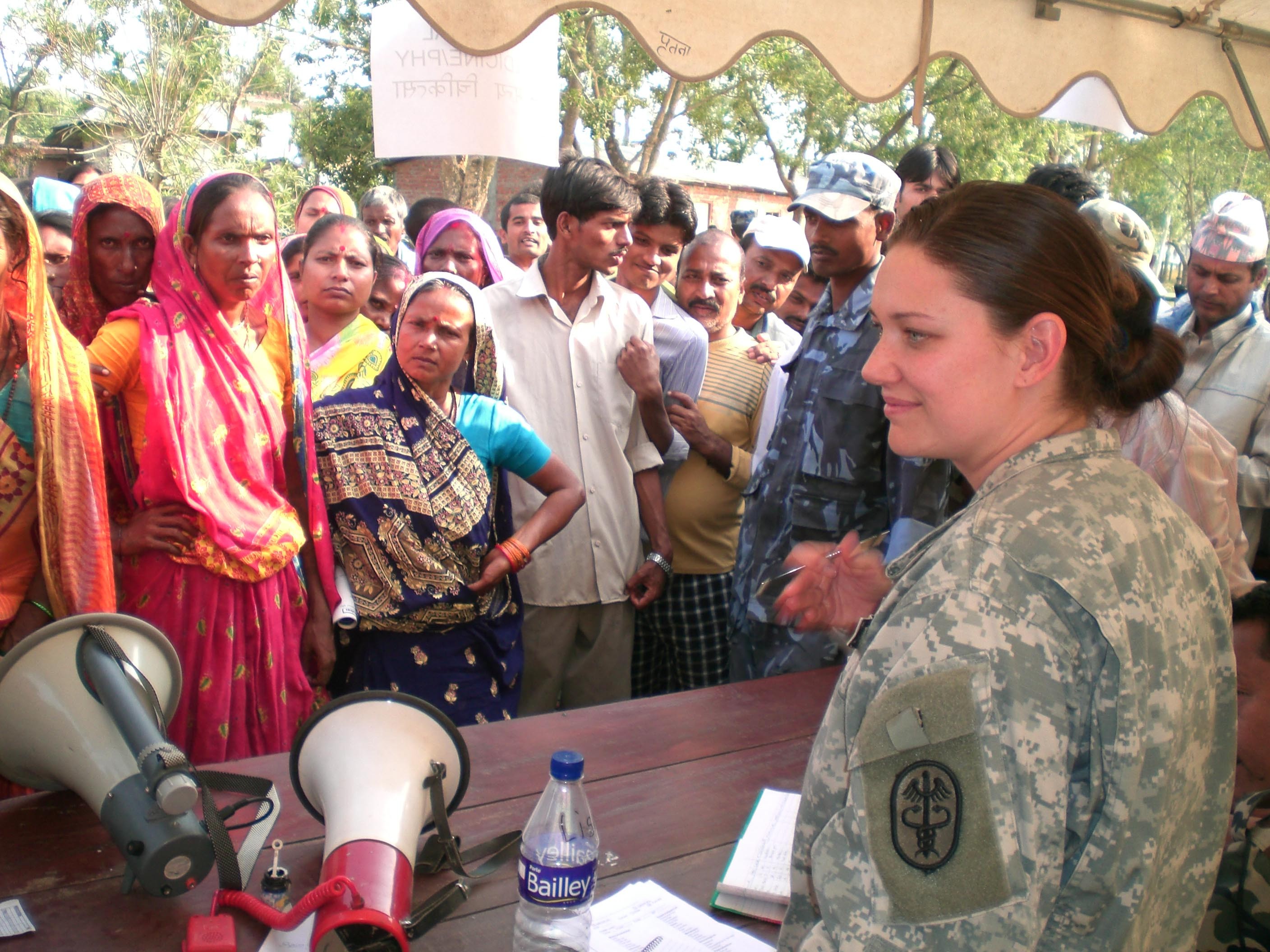

Social Sharing